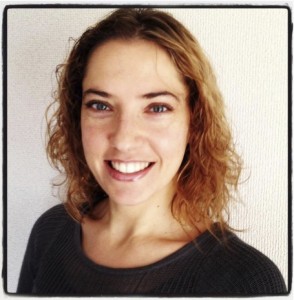- Belgium comes to Yamashita Park
- Residential Villa in Phuket Entices Remote Workers With Long-Stay Rates
- Rare pieces of French glass art at the Mirai Museum of Art
- Feast on fresh fish and seafood at the 2024 ‘Sakana’ Festival
- Would you like to ride in a Louis Vuitton gondola lift?
- Naked Snow Aquarium
- Festive lights at Yomiuriland will get you feeling the holiday vibes
“LESS IS MORE,” says Camelot International Primary School

The newest addition to affordable international schools in town
A Japanese family who chose an international education for their son to prepare him for a future global job was interviewed recently on NHK. When asked what made them decide to do so, the father, an IT professional said, ” the future of Japanese economy remains uncertain these days so we need to take our chances outside.”
According to Japan’s Ministry of Education, Culture, Sports, Science and Technology, 20.9% of children enrolled in international schools in the country are Japanese.
Families opting out of the Japanese school system in favour of international education has become increasingly popular. Add the foreigners and the demand could go higher. A number of schools are currently keeping pace with the demand. However, the ripple effects of Lehman bankruptcy and 3/11 earthquake have compelled households to tighten their purse strings giving rise to a new wave of schools offering affordable options.

Kelly Boaretto, CIPS Head Teacher
In September this year, Camelot International Primary School has jumped on the bandwagon. Tokyo families talks to Kelly Boaretto, the school’s Head Teacher to ask her a few questions.
Tell us about your new school.
As a school, we are dedicated to pursuing excellence in teaching and learning and to being known as an affordable yet quality alternative to other forms of international education in Tokyo.
Our goal is to inspire each child to strive towards their full potential in all areas of their education in a warm, friendly environment. It is our hope that the students of Camelot develop into capable and responsible members of the wider international community.
On your website is a mention of a combined curriculum based on IPC, American Core Standard for language art and American Core Standard or Japanese National Standard for Math.’ What exactly does it involve?
Our program at Camelot differs to other schools in Tokyo in that our language arts program is based on American Core Standards and our Mathematics program is based on a combination of both the American Core Standards and Japanese National Standards. It is intended that by using a combination of both, students will have the necessary foundation to pursue higher education at both foreign and Japanese universities and colleges.
All other subjects in our program are taught using the International Primary Curriculum;
A comprehensive curriculum with a clear process of learning and with specific learning goals for every subject. The IPC aims to encourage personal learning and international mindedness and is now the curriculum choice of international and national schools in over 1,600 schools in 92 countries around the world.
Does this mean an option is open to choose between two Math standards?
No. Most of the mathematics taught at Camelot is based on American Core Standards however, it is often cross-referenced with the Japanese National Standards for Mathematics to ensure that students are keeping up with both syllabuses’ standards for each grade level.
How much Japanese language/culture is taught on each grade level?
As most of our students are from Japanese families, so far it has not been essential to teach Japanese culture as a separate subject. Students learn Japanese for one hour a week and learn from their current level of Japanese.
However, as part of the International Primary Curriculum, students regularly learn about cultures of many countries with a strong focus on the country they are living in presently, Japan. This ensures that students learn international mindedness with particular emphasis on the culture of Japan.
What is a typical daily program for Early Years class?
Our Early Years program is scheduled to begin in April 2015. The daily schedule will be as follows:
The morning program will include:
• Small motor skills training
• Circle time
• Language Art
• Outside play
• IPC theme activities
The afternoon program will include:
• Lunch time and clean-up
Depending on the day, two of the following subjects:
• Math
• Science
• Social Studies
• PE
• Music
• Art
Before finishing for the day, children will also have afternoon snack time.
Please tell us about your admission test.
There are some schools that give an accelerated test to skip up a grade. Does CIPS allow that?
In order to enter Camelot, students are required to sit a basic admission test to determine their level of English and to assist in correct placement in language arts, mathematics and other subjects.
As our current program is designed to have multi-age classes, it is not necessary for students to skip or go back a grade, they are simply put into the class that most suits their English and developmental levels. Only language arts and math classes are separated according to the
admission test results.
Tell us about the teachers at CIPS and your average class size.
Teachers at CIPS are all native English teachers from a variety of English-speaking countries to ensure children are exposed to many different English accents and cultures where English is the primary language. All teachers are university -trained teachers with qualifications in school teaching, ESL and/or TEFOL and all have a level of spoken Japanese.
We select teachers with a genuine warmth and care for children. Our staff are positive and fun yet extremely professional.
As the school is only three months old, we are still establishing class sizes. However, it is intended that during math and language arts time students will be separated into classes based on their age and ability. At this time we occupy a small school building so these subject classes will not exceed six students.
How does a multi-age class work?
Each IPC unit incorporates a range of subjects including Science, History, Geography, ICT, Art and PE and provides many opportunities to link literacy and numeracy. Each subject then has a number of learning tasks to help teachers to help children achieve a range of IPC learning goals.
Each unit is appropriate for one of three different age-groups: five to seven year olds, seven to nine year olds, and nine to twelve year olds. The IPC calls these age-groups Mileposts. These multi-level groups are designed to encourage leadership skills in children in the upper age group and at the same time, allow children in the younger age group to learn from older children. It promotes equality that is not based on age or academic level. The Mileposts also allow children of similar English level, but not necessarily the same age level, to learn together across a number of different subjects.
As mentioned, students are divided into smaller groupings with individual teachers for math and language arts. This division is based not only on age or grade level but also the student’s ability in the given subject and the English language. Age gaps in these classes are kept to a minimum to ensure students are challenged and pushed to reach exceptional academic standards within their grade level and beyond. Students demonstrating solid knowledge and academic flair at their grade level are encouraged to progress quickly and join higher classes where this is suitable and students are willing.
What is your admission policy on transferees?
Currently, our students include some who have only attended international schools, some who have only attended Japanese schools and some who have attended both. Our only requirement is that students be assessed in their English ability before beginning at CIPS.
In saying that, we have accepted students who have only previously learned the alphabet and basic expressions in English. Our comprehensive ESL program ensures students learn English at an accelerated pace in order to allow them to study with the rest of the children in IPC classes as soon as possible.
Miscellaneous fees excluded, the annual tuition for Early Years Class and Primary at your school is more or less in the 800,000-900,000 yen range. Could you tell us how you are able to offer these low rates when most international schools are struggling in the present economic climate?
Our founder has been running a successful international kindergarten in Higashi-Kurume for almost ten years. During this time, she has seen children give up the opportunity to continue to primary level due to high tuition fees and quality of international education. She is also aware that some Japanese Middle or High schools are now offering an international class in each grade to bring returnees up to speed and prepare students with high academic goals for further studies in Japan or abroad. These schools charge around one third less than what bigger international schools do yet the quality is outstanding. She wanted to offer an affordable international education. She focused on employing quality teachers and developing a solid learning program. Our founder found a small, homely local building that can comfortably accommodate our students and facilities. This keeps costs down. As student numbers increase, the plan is to move to a larger building but still maintain our affordable fees. We feel that paying more money does not necessarily equate with a better education. Our goal is to strike a balance between the quality of education delivery and benefit to the child.
Any students joining this academic year can enjoy the same fixed fees each year
until they graduate regardless of any (small) fee increases in the future. We hope to be in a position to offer scholarships to deserving students who demonstrate good attitude and desire to learn and lead.
Lastly, what can parents expect from a Camelot International Primary School education?
At CIPS, we tailor our educational programs to ensure individual attention to each student. All students are encouraged to be independent learners and active participants in the wider international community. Students of CIPS are actively engaged in their own academic, personal and social development. Families of CIPS can expect professional instruction from highly qualified teachers in a warm, caring environment designed to help each student reach their full potential in all areas of education.
For more info, go to
http://camelot.tokyo.jp














